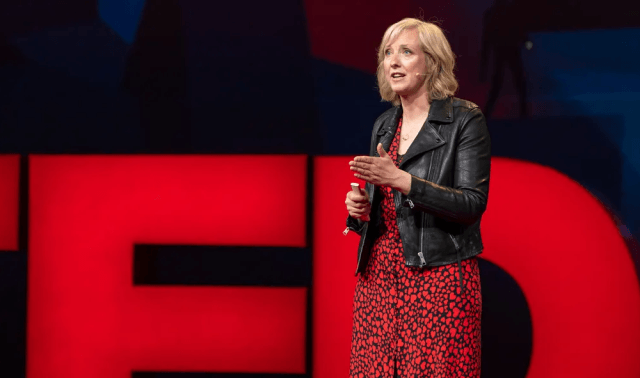Remainers still blame everyone but themselves
News & Social Media / Post
"Brexit did it" is the latest in a long line of crackpot remainer conspiracies

There’s an entertaining narrative over on Remainer Street that the Ukraine invasion started with Brexit. Quite a lot of people believe this nonsense. They need to believe it because they need to believe that Brexit happened because of “dark money” from Russia. The basis of these claims stems from the wild conspiracy theories of the Guardian’s Carole Cadwalladr.
Such claims have never been proven. The most they can come up with is allegations of accounting irregularities within Vole Leave which amounted to very little in the grand scheme of things, and if memory serves those involved were subsequently cleared by the largely remain leaning Electoral Commission.
The idea that Russia has only invaded Ukraine because of Brexit is part of a long established pattern of western establishments blaming Russia for everything, especially when it saves them having to confront their own failings. The truth, however, is that the EU was an irrelevance to Putin’s calculations on Ukraine. That’s the one thing remainers can’t cope with. It bruises their ego to think that their beloved project is of little geopolitical importance.
Then as now, the EU was never able to arrive at a common position on foreign policy from Libya to Russia, being that member states have divergent regional interests. France is still meddling in its former colonies, and Germany has long made itself dependent on Russian gas which was always going hobble the EU’s leverage. And for all that the EU is supposedly united in common endeavours, the same old imperial suspicions and rivalries are as strong as every Italy refused to partake in the Libya campaign if France had any part in the command functions, thus the campaing became a NATO operation.
Had Britain remained in the EU it is unlikely anything would have played out differently. Putin would have counted on non-intervention and only mealy mouthed condemnation. The only difference being that Britain’s own response would be delayed until EU meetings concluded. Even now, the unity is only skin deep and sanctions have been carefully crafted so as not to impact on Germany’s energy supply.
In any case, the assertion that Ukraine began with Brexit is wholly self-serving. Russian fear of Ukraine breaking out of Russia’s sphere of economic and political influence go back more than a decade, and a series of events have built up to what we see today. There is an unhealthy compulsion to find ways to blame Brexit for everything bad that happens.
Ultimately the West had more than enough warning that something like this would happen. We had the option of either expediting Ukraine’s absorption into the west, or bolstering Ukraine’s armed neutrality, but instead we strung Ukraine along with false promises, leaving the situation in a state of ambiguity which only fuelled Putin’s paranoia.
If Russian money has influenced current events it is the funding of green anti-fracking groups who’ve increased EU dependency on Russian gas. But then that is much the same kind of baseless “Russia did it” speculation. If Russian money was involved then it was dwarfed by the amount of EU money involved which has long laundered taxpayer’s money into green groups and NGOs to manufacture consent for its own policy agendas.
In fact, the EU was fighting the 2016 referendum for about as long as UKIP has existed. By funding NGOs, think tanks and academia, it has bought off most of civil society whose collective output is unquestioningly adopted by the BBC. It’s a wonder that Leave ever managed to compete with it at all.
Whether Russia did support anti-fracking groups is neither here nor there. The fact is that the entire EU machinery has opposed fracking, as has the British government. It is their collective stupidity that has undermined our energy independence. Nobody forced us to close our coal and nuclear power stations. The policy was enthusiastically adopted by leading member states.
It was a given that EU member states would independently assess their response to an attack on a non-EU, non-NATO member and nobody should be at all surprised that Poland and the UK were first to step up to the plate while Germany dithered. Putin has always been able to safely gamble on non-intervention from the West, not least because he is armed with nuclear weapons. Why that fact doesn’t feature in the tiny minds of FBPE remainers is something of a mystery.
Russia has long been the favoured scapegoat for the failures of Western progressives, which is why there has never been a serious attempt to build a functioning relationship with Russia. Antagonism suited them then as now. Now the EU gets to reassert its image as a defender of freedom and democracy despite having spend the last few years dismantling it.
The one thing remainers can’t cope with, that offends their very being, is that Brexit, in the broader geopolitical perspective, just isn't all that important. Britain is still a leading voice in the EU/US/NATO axis, and still (for good or bad) influential in its own right. Ultimately, what kept the peace in Europe was Britain’s nuclear deterrent, not harmonised food safety standards. Remainers need the Russia conspiracy theories because their fragile egos can’t handle the idea that Brexit happened for a multitude of reasons, and the world is not as black and white as they believe it is.
Recent National News











